Iran Faces New G7 Sanctions For Arming Russia
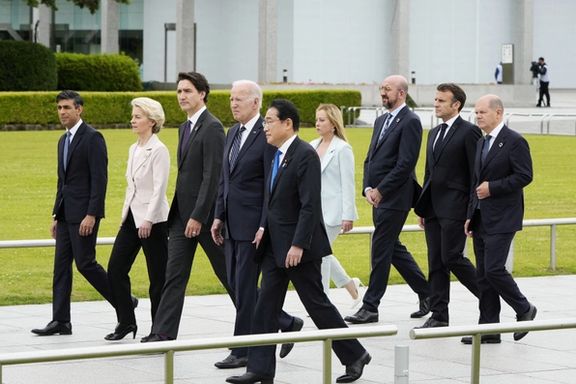
Iran has been subject to a new set of sanctions as punishment for supplying weapons to Russian in its war against Ukraine.

Iran has been subject to a new set of sanctions as punishment for supplying weapons to Russian in its war against Ukraine.
The measures were announced on Friday by the Group of Seven (G7) - Canada, France, Germany, Italy, Japan, the UK and US.
The move, imposing sanctions on more than 300 targets including those in Iran, comes at the start of a three-day summit of the G7’s leaders in the Japanese city of Hiroshima.
"This includes exports of industrial machinery, tools, and other technology that Russia uses to rebuild its war machine," the leaders said in a joint statement released on Friday, adding they would particularly target Russian revenues from trade in metals and diamonds. estimated to be worth about $4-5 billion a year.
The State Department also designated two Iranian shipping companies, a port operator and a maritime service provider it said were part of deepening ties between Russia and Iran.
US Treasury Department Secretary Janet Yellen said in a statement: "Today’s actions will further tighten the vise on (Russian President Vladimir) Putin’s ability to wage his barbaric invasion and will advance our global efforts to cut off Russian attempts to evade sanctions."
The G7 leaders will be joined this weekend by Ukrainian President Volodymyr Zelenskiy, who is currently in Saudi Arabia to attend an Arab League summit to canvas support for his people.
Saudi Crown Prince Mohammed bin Salman expressed his readiness to mediate between Moscow and Kyiv.
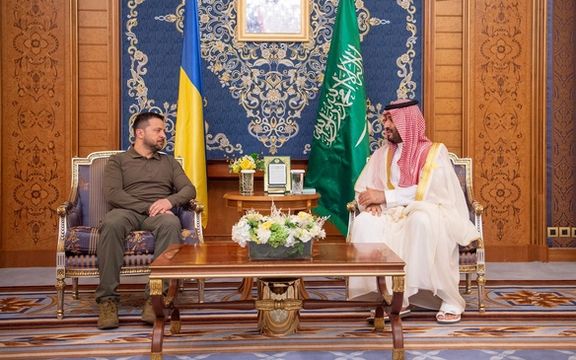
Saudi Arabia was the center of regional and world attention on Friday, as it invited both the Syrian and Ukrainian presidents to the Arab summit it was hosting.
In an unexpected move, Volodymyr Zelenskyy attended the summit of the Arab League to canvas support for his people, while Saudi Crown Prince Mohammed bin Salman expressed his readiness to mediate in the war between Moscow and Kyiv.
"We reaffirm the kingdom's readiness to continue mediating efforts between Russia and Ukraine, and to support all international efforts aimed at resolving the crisis politically in a way that contributes to achieving security," the Saudi Crown Prince said in his opening speech.
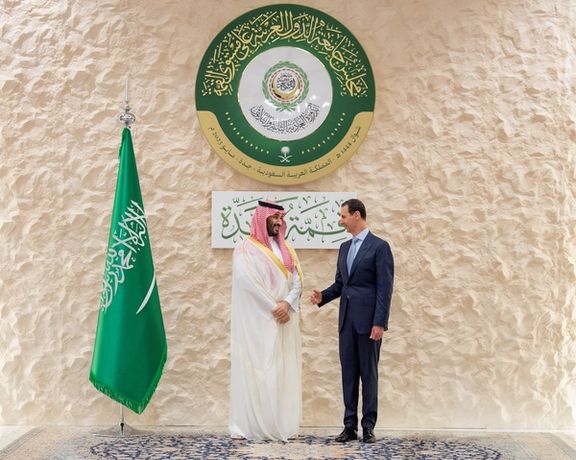
At the same time, Syrian President Bashar al-Assad was given a warm welcome at the summit, winning a hug from Saudi Arabia's Crown Prince at a meeting of leaders who had shunned him for years, in a policy shift opposed by the US and other Western powers.
However, having Assad, a Russian and Iranian ally and Zelenskyy at the same summit was a diplomatic achievement by Saudi Arabia that reinforces it image as the main player in the Middle East and increasingly a key presence on the world stage.
The government in Tehran has so far not reacted to Riyadh’s move inviting Zelenskyy to the summit, although there was negative coverage by IRGC-linked Fars news agency.
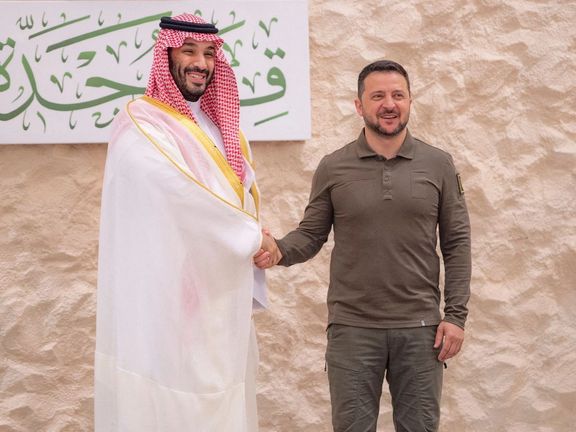
Iran has supported Russia’s invasion of Ukraine by supplying kamikaze drones and other weapons to Moscow and signing several economic agreements with Moscow just this week.
Although Tehran initially welcomed Saudi Arabia’s decision to restore ties with Assad, Iranian media began mentioning that Damascus owes tens of billions of dollars to Iran for its economic and military support since the start of the Syrian civil war in 2011. If rich Arab countries, led by Saudi Arabia, succeed in winning over Assad, Iran will be the biggest loser, finding its decade-long effort to expand influence in the Levant as a failure.
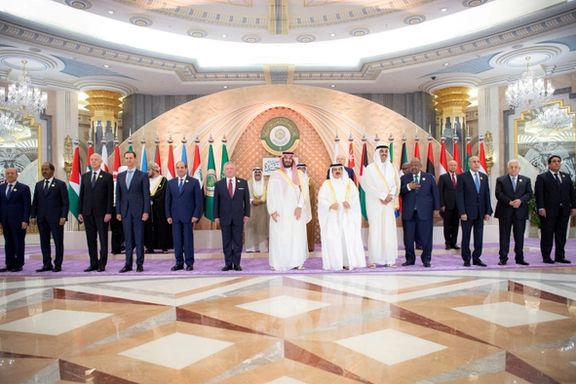
"We hope Syria's return to the Arab League leads to the end of its crisis," Crown Prince Mohammed said in his remarks, 12 years after Arab states suspended Syria as the country descended into a civil war that has killed more than 350,000 people.
Oil powerhouse Saudi Arabia, once heavily influenced by the United States, has taken the diplomatic lead in the Arab world in the past year, re-establishing ties with Iran, welcoming Syria back to the fold, and mediating in the Sudan conflict.
Washington has objected to any steps towards normalization with Assad, saying there must first be progress towards a political solution to the conflict.
"The Americans are dismayed. We (Persian Gulf states) are people living in this region, we're trying to solve our problems as much as we can with the tools available to us in our hands," an Arab source close to government circles told Reuters.
The Saudi Syrian rapprochement followed a Chinese-brokered deal between Riyadh and Tehran in March to restore relations after a seven-year hiatus.
In 2018, the Qatari emir said the region could not tolerate "a war criminal" like Assad. Qatar hosted an Arab summit a decade ago at which the Syrian opposition sat in Syria's seat. Many regarded Assad as a war criminal for bombing and gassing his own people during the civil war.
With reporting by Reuters

The US, UK, Denmark and others have warned about the booming practice of unregulated ship-to-ship oil transfers at sea, which increase the risk of pollution.
"These transfers undermine the rules-based international order and increase the risk of pollution to nearby coastal States. This threatens global efforts to prevent pollution from ships," the paper submitted to the UN said.
The paper was submitted to United Nations International Maritime Organization (IMO), by the member states ahead of a major marine environment protection committee session in July. It was also backed by Australia, Canada, Spain and Ukraine.
Hundreds of "ghost" tankers, which are not fully regulated, have joined this opaque parallel trade over the past few years, carrying oil from countries hit by Western sanctions and restrictions, including Russia and Iran, whose oil exports have been sanctioned.
The number of incidents last year, including groundings, collisions and near misses involving these ships reached the highest in years, a Reuters investigation showed.
"These risky practices, although under the jurisdiction of a flag state, unjustly expose national and local governments and authorities to paying for response and clean-up costs and compensating victims," the paper said.
Tactics used by such ships include switching off tracking transponders, faking locations and also conducting ship-to-ship (STS) operations at locations outside of authorized transfer zones and sometimes in poor weather to conceal activities.
The paper, which will be discussed at the IMO session, said deceptive shipping practices were also "serious threats to the safety and security of international shipping", including crew members.
The countries recommended that when flag states became aware of such practices, they should step up inspections of those vessels and boost monitoring of activity including around territorial waters.
Reuters Report

The UK government is split over whether to proscribe Iran’s Revolutionary Guard (IRGC) as a terror group, according to press reports.
Home Secretary Suella Braverman and Security Minister Tom Tugendhat are both said to back the move and bring Britain in line with policy in the US.
But Foreign Secretary James Cleverly is believed to be holding out against the change.
Critics say he is being badly advised by civil servants, claiming he is “too closely led by officials”.
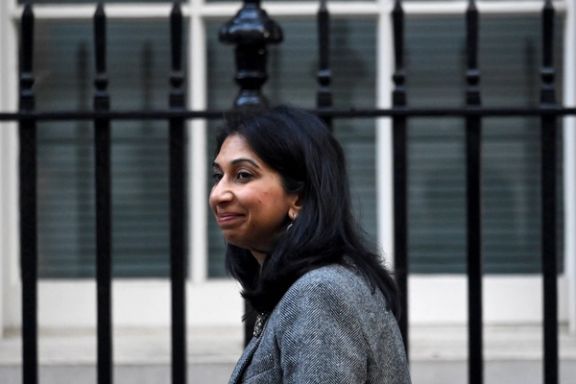
The reports come after British-Iranian campaigner Vahid Beheshti ended his 73-day hunger strike outside the Foreign Office building in London last week. Now recovering in hospital, Beheshti has been calling for the British government to ban the IRGC. He has the support of more than a hundred members of the UK parliament.
The IRGC is designated as a “foreign terrorist organization” by the US, and has a long history of fomenting assassinations and attacks on civilians across the region and around the world. Earlier this year British counter-terrorism officers revealed that they had foiled 15 plots by Iran to either kidnap or kill British or UK-based individuals it considers “enemies of the regime”.
However, the Foreign Office is said to believe in valuing intelligence and maintaining dialogue over a “gesture”, as one source speaking to The Sun newspaper described the terror designation for the IRGC.
There is also said to be concern over how Tehran might retaliate, whether by targeting UK citizens in Iran – possibly adding to the number of foreigners who have been taken hostage – or by acting on British soil.
A Foreign Office source The Sun: “Nothing is ruled in or out. And anonymous personal comments about the Foreign Secretary will not distract from the ongoing business of the Government.”
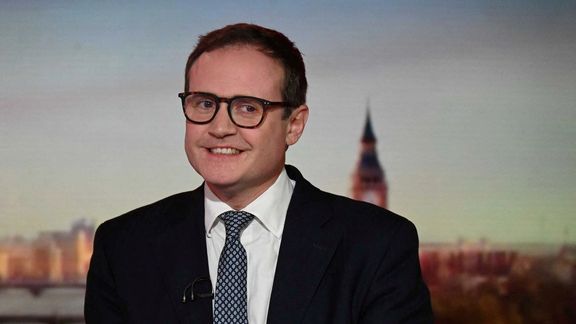
However, Security Minister Tugendhat’s uncompromising approach over Iran was echoed by his counterpart in the Labour Party opposition, who are leading the governing Conservative Party in the polls and widely predicted to take over in government after a scheduled general election next year.
Speaking at a security conference in London, Shadow Security Minister Holly Lynch added her voice to calls for a ban on the IRGC.
She said a ban “wouldn’t simply be a symbolic measure – which would be powerful in its own right, but that is not what proscription powers should be used for.”
The shadow minister added: “Proscription would grant law enforcement the powers to take action against those supporting the IRGC and allow for a more effective dismantling of the support base necessary to facilitate such unacceptable conduct here within our borders.”
She voiced her outrage over the revelation of the 15 plots by Iran against targets in Britain, many of them in the media.
Ms Lynch said: “We have to ask ourselves what message does that send to the rest of the world, when journalists are not safe here in the UK.
“When we have authoritarian hostile states engaged in exporting tyranny into our country, pursuing those they perceive as enemies, and the heads of our security services are calling it out for the terrorism that it is, it calls for a significant and robust response from the UK.”
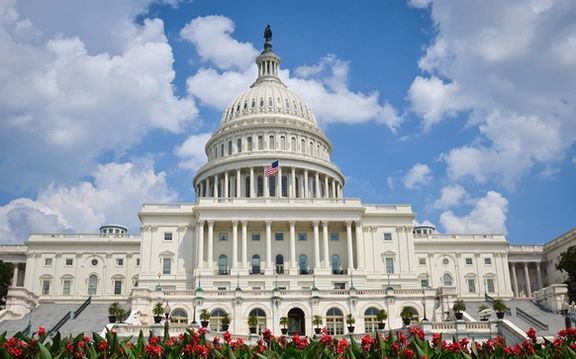
United States senators expressed disappointment with an administration briefing on Iran on Tuesday in comments to reporters after the meeting.
“Based on what I heard during the last 40 minutes they really don't have much to say on the topic, and I didn't think it was particularly useful briefing. I don't know if they really have a coherent strategy if there is one I didn't I didn't hear,” Sen. Josh Hawley a staunch Republican critic of the Biden administration said in response to our correspondent Arash Alaei.
US senators on Tuesday heard a confidential briefing on Iran by Biden administration officials eight months after long nuclear talks with Tehran reached an impasse last September and Iran continued its uranium enrichment, building up its stockpile of fissile material.

Sen. Hawley added that in his view there was no need to classify the briefing as ‘confidential’ and the senators were not given any new information. “We didn't learn anything new or remotely classified.”
Senator Jim Risch (R-Idaho) released a brief statement saying that after six months since President Joe Biden declared the 2015 nuclear accord, the JCPOA “dead” the US “is no closer to a more comprehensive Iran policy. Strategic ambiguity on Iran policy only serves to embolden the regime and push our partners closer to China.”
President Biden was heard saying in November 2020 that the JCPOA is dead, but the administration has continued to emphasize its commitment to a diplomatic solution.
After nuclear talks with Iran hit a dead-end last year, senior US officials have repeatedly said that they are no longer focused on the JCPOA.
Sen. Risch went on to say that “As Iran continues to illegally seize vessels, target Americans in the region, and support its terror proxies and the Russian invasion of Ukraine, Americans deserve a policy that is more than a failed nuclear negotiation.”
Republican senator from Lousiana, John Kennedy, told reporters that he believes China, Russia and the Islamic Republic are coordinating efforts to dominate the Indo-Pacific, Central and Eastern Europe and the Middle East respectively.
“That is not a world that is safe for the US,” he said, and added, “We are in a bar fight with Putin, with Xi, with the Ayatollah,” and the Biden administration “believes in peace, but they believe in peace for weakness.”
Senator Kennedy also echoed Sen. Risch’s comment about the administration not having an effective policy. Sanctions have been imposed on Iran and Russia, but “when you ask the administration, what is your plan given that the sanctions have not stopped them, or what is your plan in addition to the sanctions, you are met with either silence or BS or both.”
The senator was also clear about what he expects from a possible nuclear deal with the Islamic Republic. “The deal I want is for Iran to give up all of its fissile materials, all of it, and give up its capability of making a nuclear bomb and to allow international inspectors to check them every other day. Otherwise, they probably won't have any deal.”
Senator Rick Scott (Rep-Fl) in response to questions expressed deep concern about Iran’s role in the region and in helping Russia’s invasion of Ukraine.
“I don't think you can say there's anything good happening out of Iran.”

US senators on Tuesday heard confidential briefings on Iran by Biden administration officials after months of a pause in nuclear talks with Tehran.
Although no detailed reports are yet available, scant information shows that Republican senators sharply criticized the administration for lack of a new policy on Iran and what some said was lack of effective sanctions enforcement.
Senator Jim Risch (R-Idaho) released a brief statement saying that after six months since President Joe Biden declared the 2015 nuclear accord, the JCPOA “dead” the US “is no closer to a more comprehensive Iran policy. Strategic ambiguity on Iran policy only serves to embolden the regime and push our partners closer to China.”
Biden administration’s indirect negotiations with Iran to revive the agreement, abandoned by former President Donald Trump in 2018, reached a deadlock last September. Since then, senior US officials have repeatedly said that they are no longer focused on the JCPOA.
President Biden was heard saying in November 2020 that the JCPOA is dead, but the administration has continued to emphasize its commitment to a diplomatic solution.
Sen. Risch went on to say that “As Iran continues to illegally seize vessels, target Americans in the region, and support its terror proxies and the Russian invasion of Ukraine, Americans deserve a policy that is more than a failed nuclear negotiation.”
Iran appears to have been emboldened by a Chinese-brokered deal to restore relations with Saudi Arabia after years of regional isolation. It has openly taken credit for supporting Palestinian and other militant groups for their attacks on Israel in April and May and has seized two commercial vessels in the Persian Gulf region in recent weeks.
The Saudi-Iranian agreement was seen as empowerment of China in the Middle East and a sign of waning US influence in the region.
Israeli officials have been urging more military and economic pressure on the Islamic Republic, but the Biden administration appears to be reluctant to get entangles in a new conflict, as it is focused on the war in Ukraine and the Taiwan crisis.
Politico quoted a Senate Democratic aide Monday that there has been progress in indirect nuclear talks with Iran, but so far, there is no indication that this was part of the briefing in the Senate.
Republicans have long been demanding a more forceful approach by the administration toward Iran, including a vigorous enforcement of key sanctions,
Senator Lindsey Graham criticized the fact that Iran’s oil illicit oil exports to China are increasing and the Biden administration does little to enforce third-party penalties on those who buy Iranian crude.